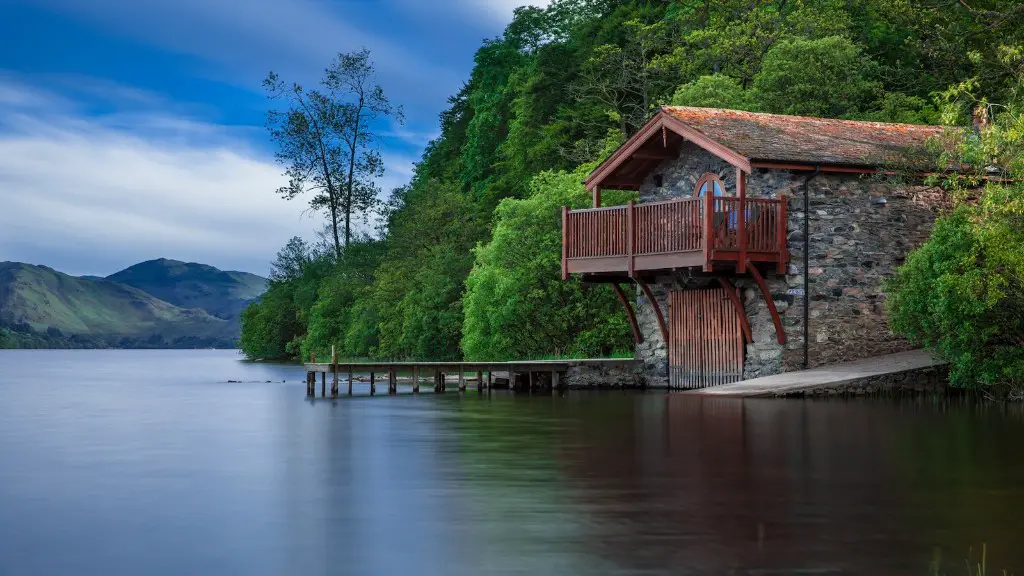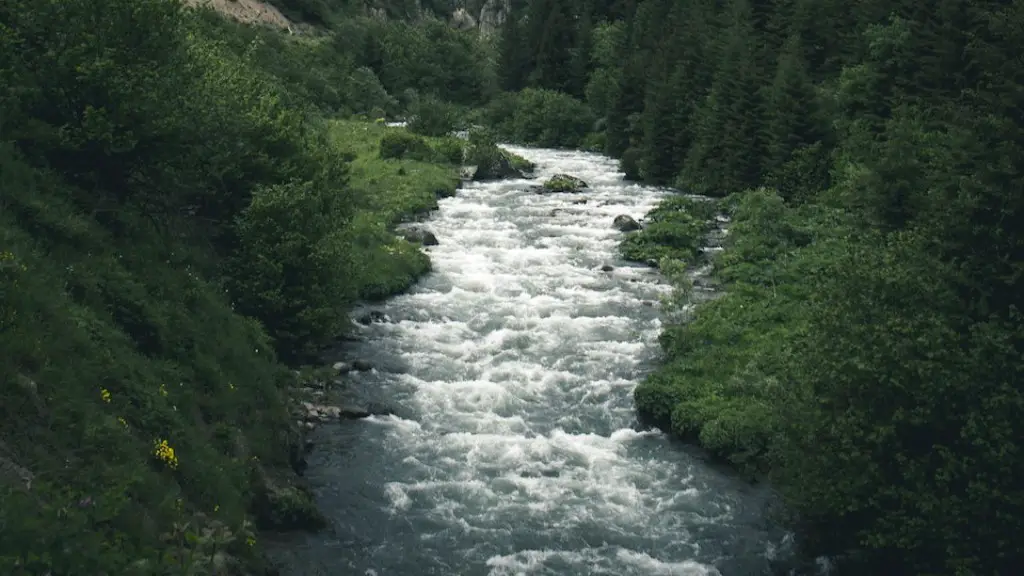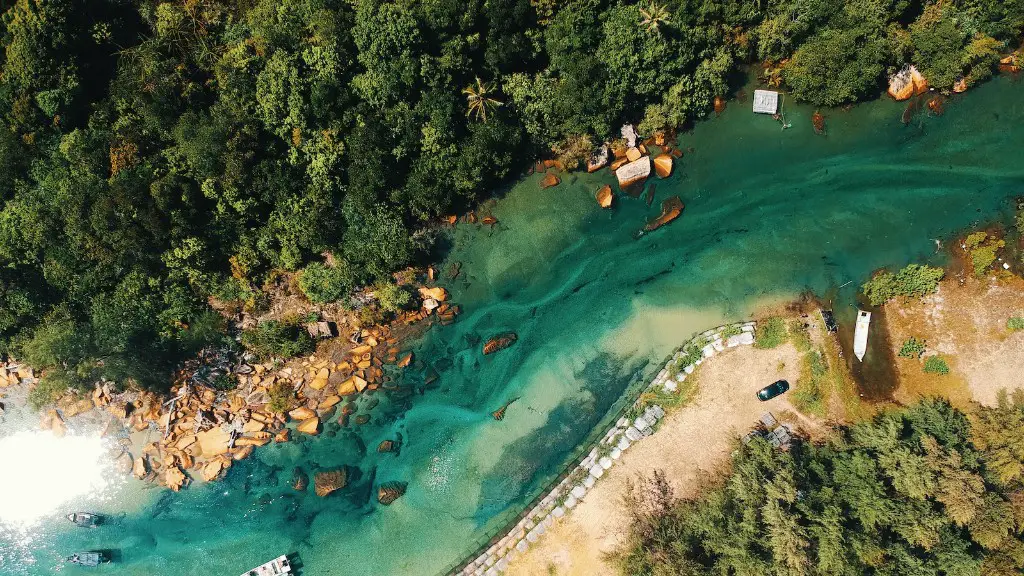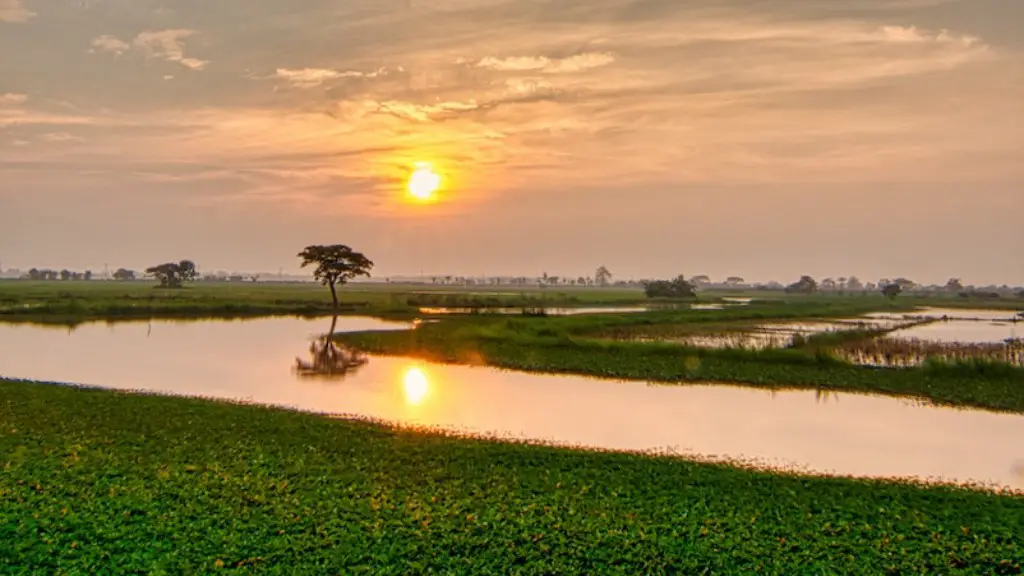Overview of Mississippi River
The Mississippi River is a defining geographical feature of the United States. It is the second longest river in North America, and is the largest in the United States. At an estimated length of more than 2,320 miles (3,750 km), it has long been an important travel route and source of fresh water, providing transportation and agricultural resources to the American Midwest and Great Lakes region.
The Mississippi River has served as an important source of commerce, recreation, and cultural history for centuries, with substantial population centers forming along its path. Running along ten states, the river has seen the birthplace of blues music and American literature, provided the foundation for vibrant transportation and trade networks, and sparked inspiration in all forms of art.
Challenges of Traveling Along the Mississippi River
Traveling along the entire length of the Mississippi River presents a unique set of challenges. Depending on the water level, passing through the locks along the river’s path can take from 10 minutes to several hours. Each lock must be manually opened and closed, so someone must be on hand to operate it. Weather conditions can be unpredictable, and during the wet season navigation is more difficult due to the high water levels and the speed of the current.
Those seeking to travel the entire river must also account for the many bends and turns in the river. These can cause navigational difficulties, so a good map or GPS system would be necessary. Furthermore, portions of the river in certain states have laws limiting boat speed, in order to protect fragile wildlife habitats on the banks.
Additionally, travelers must take into consideration the time of year they plan to pursue this challenge. With its cold winter temperatures, the Mississippi River can be hazardous and even impassable in the winter due to ice buildup. During the summer, temperatures can be extreme and the water can become very low in certain areas.
Benefits of Traveling Along the Mississippi River
Despite the associated risks and challenges, traveling along the Mississippi River can be an extremely rewarding and unique experience. There are several benefits to taking on this adventure.
Those who embark on this journey will have the opportunity to witness some of the most stunning landscapes in the country. The river has a unique biodiversity and its banks span rural, urban, and agricultural regions, providing for interesting perspectives. Furthermore, those on the banks of the river can enjoy the vibrant wildlife, the unique river culture, and the music and art created along the banks of the river.
In addition, travelers have the opportunity to connect with the people on the banks, including the residents of the rural areas along the shore as well as the shops and restaurants that have been built to cater to travelers. There are also numerous historical sites along the river, providing opportunities to learn more about the rich history of the United States.
Traveling the Length of the River
For those who undertake this adventure, there are both logistical and financial considerations. Travelers may wish to choose a single mode of transportation or use a combination of vehicles, such as a canoe, a kayak, or a motorboat. Access to water and fuel may become an issue for those traveling in motorboats, so refueling options should be mapped out ahead of time.
In terms of equipment, provisions should be made for safety, such as life preservers and other safety gear, as well as accessories such as fishing equipment, tents, and other camping gear. Finally, along with planning for the financial costs associated with such a journey, travelers should consider purchasing travel insurance for their trip, as the risks and potential for injury or other mishap may be higher than on an ordinary vacation.
For those seeking to take on this challenge, there are a number of resources available to aid in navigational planning. For instance, many stretches of the Mississippi River are marked with buoys that indicate the direction of the current, navigational hazards, and depths of the river. There are also a number of maps and GPS navigation systems that are tailored for navigation on the river. Additionally, river pilots and boat clubs can provide guidance and advice for safe navigation.
River Towns and Recreation
Although the journey along the Mississippi River presents its own risks and challenges, taking the time to explore and interact with the many river towns along its path can be an integral part of the experience. These towns have their own unique cultures and populations, as well as distinct cuisines that can provide travelers with vibrant cultural experiences. Additionally, these towns often have marinas and recreation centers where visitors can enjoy a variety of water sports and recreational activities.
The Mississippi River also provides an abundance of natural beauty and wildlife, making it an ideal place for bird watching, fishing, and viewing the unique river ecosystems. There are also a variety of national and state parklands located along the banks of the river, providing opportunities for camping, hiking, and more.
Accessing Resources for Mississippi River Travel
Those looking to learn more about Mississippi River travel will find a wealth of resources available. There are numerous books and websites that provide detailed planning advice, safety tips, and maps of the river’s path. Additionally, many river cruise companies also offer advice and insight on navigating the river, as well as travel packages that include tours, guides, and other services.
Additionally, certain organizations have been created to provide information and support for those seeking to travel the length of the Mississippi River. The Mississippi River Adventurers Society is one example of such an organization. The society is a forum for those seeking to combine their passion for the outdoors with their passion for the river, and provides resources and support for both experienced river travelers and those just beginning their journey.
Planning and Trip Preparation
Although traveling the entire length of the Mississippi River presents a unique and highly rewarding challenge, it is important to take the time to plan and prepare for such a trip. Proper preparation can not only reduce the potential for potential hazards, but can also enhance the overall experience. Those seeking to undertake this journey should consider the associated risks and rewards, access the resources available, and plan accordingly. With proper preparation, travelers can ensure that their Mississippi River experience is a safe and productive one.
Impact of Weather on Mississippi River Voyages
Travelling the Mississippi river is always subject to the impacts of weather. The warmer months of the year mean higher water levels, and these higher levels can create faster and more unpredictable currents, making navigational challenges more difficult. The winter months mean lower water levels and colder temperatures, which can make the river more prone to freezing and generally cause more hazards. Additionally, storms pose a special risk to those travelling the river, as riverside areas can become flooded or blocked with debris.
Due to these challenges, it is important to monitor the weather closely when taking on a journey along the Mississippi River. Paying attention to storm watches, flood advisories, and other weather reports helps create a safer and more informed experience. Additionally, averting the river during particularly severe storms is always recommended, as river traffic can become more unpredictable during such events.
General Safety Guidelines for the Mississippi River
In addition to monitoring weather forecasts, other safety guidelines should be adhered to when travelling the Mississippi River. Before setting out, it is important to understand the local laws, such as boat speed limits, restrictions on size and equipment, and other considerations that may be in place. Additionally, all vessels should be inspected for any potential malfunctions or dangers before beginning a trip.
Alcohol should also be avoided while travelling, as boating under the influence can lead to tragedy. Finally, all passengers should wear life jackets while in travel, regardless of their swimming abilities. Furthermore, those travelling long distances may want to consider scheduling rest stops, as long periods without rest can be hazardous.
Alternative Modes of Transportation
While travelling the Mississippi River by boat is the most common form of navigation, there are some alternative modes of transportation that may be considered. Walking and cycling are both possible ways to cover a portion of the river and engage with the local cultures. Furthermore, for those seeking an extended period of exploration and physical activity, there are a number of guided hikes that follow a route along the Mississippi River.
Additionally, railroads provide another way to travel the length of the river. Amtrak, the national passenger railroad, operates a number of routes along the river, offering services across eight states, reaching cities including Memphis, New Orleans, St. Louis, and Chicago.
Conclusion
Exploring the Mississippi River can be a rewarding and unique experience. With its distinct culture, dynamic landscapes, and network of river towns and historical sites, the Mississippi River offers plenty of adventures for those willing to take on the challenge. However, prior planning and preparation are essential to ensure a safe and successful journey.





